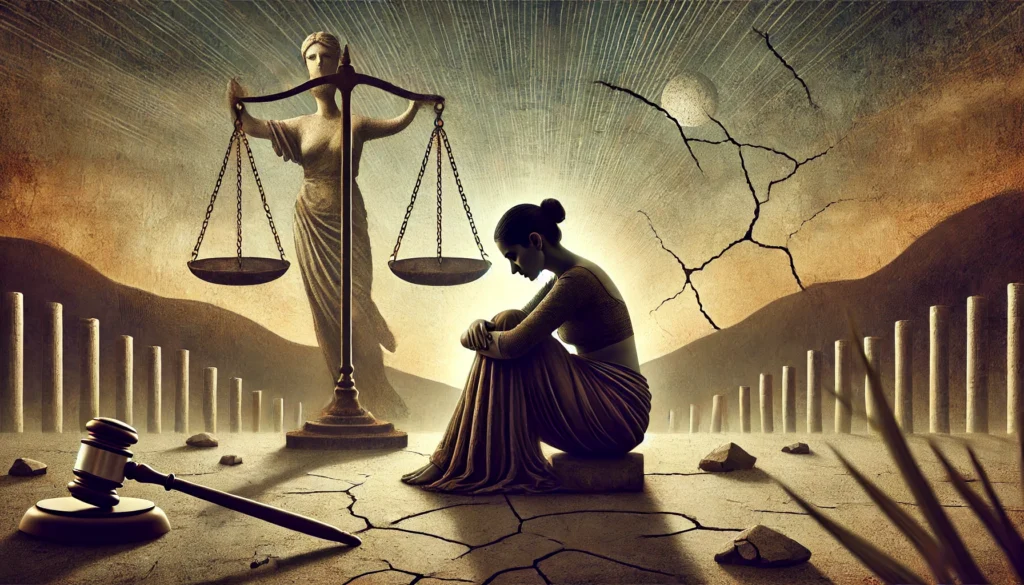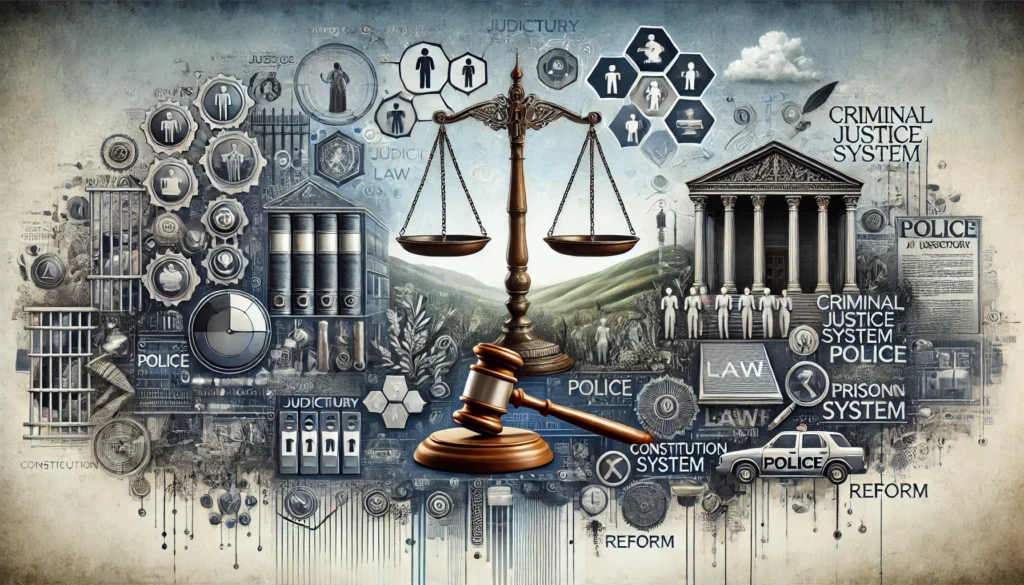Published On: 30th August, 2024
Authored By: Vanshika Chaudhary
University School of Law and Legal Studies, Guru Gobind Singh Indraprastha University
1. Introduction
Mansi Khatri v. Gaurav Khatri[1] is a 2023 Supreme Court case that came under the Civil Original Jurisdiction of the Supreme Court. In this case, the apex Court granted mutual consent divorce to both parties under Article 142[2] of the Constitution of India. “This ruling is significant in the light of the judgement dated 01-05-2023, wherein the Constitution Bench had held that the Supreme Court has the power to dissolve a marriage on the ground of irretrievable breakdown under Article 142(1)[3] of the Constitution of India.”[4] The coram, in this case, consisted of Hon’ble Justice Sanjay Kishan Kaul and Hon’ble Justice Ahsanuddin Amanullah.
2. Facts of the Case
In this case, the wife Mansi Khatri (Petitioner) filed a Transfer Petition seeking transfer of the Divorce Petition No. 802 of 2022, filed by her husband, Gaurav Khatri (Respondent) under Section 13(1)[5] of the Hindu Marriage Act, 1955, titled “Gaurav Khatri versus Mansi Khatri”. This Transfer Petition sought to transfer the petition from the Court of the learned Principal Judge, Family Court, Indore, Madhya Pradesh to the Family Court in Lucknow, Uttar Pradesh.
The parties got married on 12th December 2016 and separated on 29th October 2021 without the birth of any child. The petitioner’s father, Mr. Shyam Krishna Mehrotra also registered a First Information Report (FIR) at Police Station Ghazipur, Uttar Pradesh for offences punishable under Section 498A[6], 323[7] and 354[8] of the Indian Penal Code, 1860 and Sections 3[9] and 4[10] of the Dowry Prohibition Act, 1961. The petitioner also filed a Maintenance Case under Section 125[11] of the Code of Criminal Procedure, 1973, which is presently pending before the learned Family Court, Lucknow.
Since both parties expressed their desire to settle the matter through mediation, the Supreme Court referred the matter to the Supreme Court Mediation Centre on 7th December 2022. The mediation was unsuccessful but the respondent-husband, through his Counsel, submitted before the Court, on 14th March 2023, that he was willing to a divorce by mutual consent.
“The divorce petition was filed under Section 13(1)[12] (divorce) of the Hindu Marriage Act, 1955.”[13] The Supreme Court of India was of the opinion that in the present case, the parties had suffered an irretrievable breakdown of marriage.[14] “In such a view, in order to render complete justice, it is a fit case to exercise the power vested under Article 142 of the Constitution of India by closing all cases filed by the parties against each other and also granting a decree of mutual consent divorce.”[15]
3. Key Legal Issues Raised
The following issues were raised in the present case:-
What is the appropriate amount of permanent alimony to be paid by the respondent to the petitioner, considering the financial positions and needs of both parties?
In this case, the Counsel for both parties left it up to the Court to fix a permanent alimony amount based on the facts and circumstances placed on record during the case proceedings. “This was in the background of the stand taken by the learned counsel for the petitioner that the petitioner desired Rs.70,00,000/- (Rupees Seventy Lakhs) as permanent alimony, whereas the respondent had offered only Rs.25,00,000/- (Rupees Twenty-Five Lakhs).”[16]
4. Contention
The main contention in this case was the granting of divorce to both the parties and the permanent alimony amount, which had to be fixed by the Court. In this case, the Court directed the respondent-husband to pay thirty-five lakh rupees to the petitioner-wife as permanent alimony, within a period of six months from the date of judgement. This amount was granted to the petitioner-wife keeping in consideration, the financial position and assets of the respondent-husband. The Court also warned the respondent-husband that if he did not pay the permanent alimony sum on time, the FIR and the maintenance case would be revived.
Also, the parties were granted divorce on the grounds of mutual consent as the Court found that there was an irretrievable breakdown of the marriage of both parties in this case. Thus, the Court resolved both the contentions present in this case through the final judgement.
5. Judgement
“On 01-05-2023, a 5-judge Constitution Bench had held that the Supreme Court has the power to dissolve a marriage on the ground of irretrievable breakdown under Article 142(1)[17] of the Constitution and that it can dissolve a marriage by mutual consent without following the procedural requirement of a second motion.”[18]
The court granted mutual consent divorce to both parties under Article 142[19] of the Constitution of India on the grounds of irretrievable breakdown of marriage. The Court also quashed the FIR filed by the petitioner-wife’s father against the respondent-husband. Along with this, the Maintenance Case filed by the petitioner-wife was also quashed. The Divorce Petition was also withdrawn.
Keeping in view the financial position of both the parties, the Court directed the respondent-husband to pay thirty-five lakh rupees to the petitioner-wife as permanent alimony, within a period of six months from the date of judgement. The Court also warned the respondent-husband that if the permanent alimony sum was not paid by him, the FIR and the maintenance case would be revived.
6. Defects of Law and Critical Analysis
In this case, “the Supreme Court on December 7, 2022, had passed an order referring the matter to the Supreme Court Mediation Centre pursuant to the stand of the parties that they were desirous of settlement through mediation. However, the mediation was unsuccessful, and the respondent-husband informed the court on March 14 this year that he was willing to opt for a mutual consent divorce. The respondent-husband, however, informed the court that no agreement could be reached on permanent alimony.”[20] This highlights the need to reform the mediation process in India, especially in family law cases. In place of a common mediation centre for all kinds of cases, family mediation centres should be established, that specialize in family law cases.
Also, the mediators involved in such cases should have proper knowledge of family law and must be provided with adequate training in this arena. Along with that, there should be a provision for judicial oversight in the cases referred to mediation centers to ensure that all the laws are complied with by both parties.
Family law cases require a unique approach in the process of mediation due to their emotional nature. By establishing mediation centres specializing in family law, recruiting properly trained and fully qualified mediators, and ensuring the confidentiality of the mediation proceedings, the mediation process can be reformed to be more effective and responsive to the requirements of the parties involved in family disputes.
7. Impact of the Case
Thus, it can be inferred from this case that the Supreme Court of India has the power to grant divorce under Article 142[21] of the Constitution of India. In such cases, it can also close all the cases filed by the parties against each other and grant a decree of mutual consent divorce.
Keeping in mind the facts and circumstances of the case, the Court then granted divorce by mutual consent to both the parties, to render complete justice, as the parties suffered an irretrievable breakdown of marriage.
Also, in this case, the Court directed the respondent-husband to pay thirty-five lakh rupees to the petitioner-wife as permanent alimony, within a period of six months from the date of judgement, keeping in view the financial position of both parties. The Court also warned the respondent-husband that if the permanent alimony sum was not paid by him on time, the FIR and the maintenance case would be revived. The Court also disposed of other pending applications and the Transfer Petition, filed by the petitioner-wife, in this case.
Reference(s):
[1] Mansi Khatri v. Gaurav Khatri, Supreme Court of India, May 19, 2023, 2023 SCC 667, SCC Online (India).
[2] The Constitution of India, Constitution, Jan. 26, 1950, (India).
[3] Ibid.
[4] Bhardwaj, P. (2023, May 20). Irretrievable breakdown of marriage | The Supreme Court invokes Article 142 of the Constitution to grant mutual consent to divorce.
SCC Online Blog. https://www.scconline.com/blog/post/2023/05/20/supreme-court-grants-divorce-under-article-142-of-the-constitution-irretrievable-breakdown-of-marriage/.
[5] The Hindu Marriage Act, 1955, Act No. 25 of 1955, Acts of Parliament, 1955 (India).
[6] The Indian Penal Code, Act No. 45 of 1860, Acts of Parliament, 1860 (India).
[7] Ibid.
[8] Ibid.
[9] The Dowry Prohibition Act, 1961, Act No. 28 of 1961, Acts of Parliament, 1961 (India).
[10] Ibid.
[11] The Code of Criminal Procedure, 1973, Act No. 2 of 1974, Acts of Parliament, 1974 (India).
[12] The Hindu Marriage Act, 1955, Act No. 25 of 1955, Acts of Parliament, 1955 (India).
[13] Bakshi, G. K. (2023, May 19). Supreme Court invokes its power of complete justice to grant a divorce by mutual consent on irretrievable breakdown of marriage. The Leaflet. https://theleaflet.in/supreme-court-invokes-its-power-of-complete-justice-to-grant-divorce-by-mutual-consent-on-irretrievable-breakdown-of-marriage/
[14] THE SUPREME COURT OF INDIA, Transfer Petition (Civil) No. 1595 of 2022. https://main.sci.gov.in/supremecourt/2022/21900/21900_2022_2_1501_44628_Judgement_19-May-2023.pdf
[15] Ibid.
[16] The Supreme Court of India, Transfer Petition (Civil) No. 1595 of 2022. https://main.sci.gov.in/supremecourt/2022/21900/21900_2022_2_1501_44628_Judgement_19-May-2023.pdf
[17] The Constitution of India, Constitution, Jan. 26, 1950, (India).
[18] Bhardwaj, P. (2023, May 20). Irretrievable breakdown of marriage | The Supreme Court invokes Article 142 of the Constitution to grant mutual consent to divorce.
SCC Online Blog. https://www.scconline.com/blog/post/2023/05/20/supreme-court-grants-divorce-under-article-142-of-the-constitution-irretrievable-breakdown-of-marriage/.
[19] The Constitution of India, Constitution, Jan. 26, 1950, (India).
[20] Bakshi, G. K. (2023, May 19). Supreme Court invokes its power of complete justice to grant a divorce by mutual consent on irretrievable breakdown of marriage. The Leaflet. https://theleaflet.in/supreme-court-invokes-its-power-of-complete-justice-to-grant-divorce-by-mutual-consent-on-irretrievable-breakdown-of-marriage/
[21] The Constitution of India, Constitution, Jan. 26, 1950, (India).




